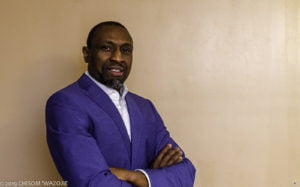It is a commonly used strategy – if you wish for African people to arrive at your event on time, you must allow for an extra 3 hours ahead of the actual start time; in other words, tell them that the event begins 3 hours before it really does. Africans have an inherent tendency to arrive late; this phenomenon is commonly referred to as “African Time.” The term underlines a cultural propensity, a more relaxed attitude to life. Unfortunately, this relaxed perception of time in Africa has become mainstream and is even celebrated as humor. In fact, some countries in Africa have started to personalize and claim this vice proudly, for example, Nigerians now often call it “Nigerian Time.”
There is an important question to ask here: does the phenomenon of “African Time” or “Nigerian Time” underscore a more serious problem. I asked Dr. Duruibe Aguocha, a social psychologist based in California. Dr. Aguocha told me, “I have stopped doing any type of party at my home.” On his 50th birthday, Dr. Aguocha invited some of his Nigerian friends to a party. He anticipated that the party would end at midnight, however, at 2 am, guests were still arriving. The next day, his neighbors complained about the unusual late-night disturbances. “African Time, as they call it, has an objectionable social impact,” Dr. Aguocha insisted.
Dr. Angus Musoni, a professor of African studies at one of Africa’s famous universities, argues that African culture regarding time is polychronic. He contends that people tend to schedule several things for the same or a similar time, as opposed to doing things in sequence. However, scheduling too many events for the same time is disorganized and chaotic. According to Dr. Musoni, Africa’s attitude toward time manifests in a particular strategy for managing everyday events and interactions that is different from the rest of the world. “In fact, time management may be the bane of Africa’s development,” he argues.
He echoes the opinion of one Ghanaian writer who argues that “African Time” is the main reason why Africa remains underdeveloped. Considering the speed at which information travels in the digital age, information can only be used as a tool for economic development by processing and using it at the same speed as the rest of the world. This is also the only way to remain competitive in the global marketplace of ideas.
Once upon a time, an African president seemed to recognize that “African Time” underscores a more serious problem. In October 2007, the former president of Ivory Coast, Koudou Laurent Gbagbo, launched a campaign against “African Time.” His campaign slogan was “African Time is killing Africa – let’s fight it.” Gbagbo argued that missed appointments, delayed meetings, and late buses were harming productivity. Although his campaign was taken to a hyperbolic frenzy, it is true that productivity is measured against time. As such, some people argue that, for Africa to equal the rest of the world in terms of development, Africa’s general perception of time must change.
Do you think that “African Time” underscores a more serious problem in African culture? If you have a story or any personal experience about “African Time,” I invite you to share them with my readers at Candid Pen. Please also encourage your friends to chime in.
#AfricanTime
#NigerianTime
#TimeNaMoney
#TimeWaitsForNoOne
Follow Hamilton Odunze on Twitter @hodunze1



This Post Has 7 Comments
Time is one essential commodity God avails all, but few use well. We usually start late and disperse, achieving little. African Time is real and our problem, but only a handful understand this.
Great minds think alike
Time has irredeemable value, use it wisely.
When I left Nigeria 20 years ago, my dad told me that Oyibo man hates tardiness (late coming) and that it I have to be at work by 7:30am, I should be there 30 minutes earlier. I have lived by that advice since then. I advice my kids the same too and I get mad at them when the lazy about getting dressed up for an event or going to school. The African Man Time is a culture that we have mastered to our disadvantage. It hinders growth in our careers and personal life.
This story about “African Time” is apt but I wish to opine that Africans will rise above this degrading setback and abuse of time management. However, from my Princely view, I have established the propensity to arrive to events or occasions few minutes before the time to relax my stress before the action begins!!
On the paragraph, Nigerian Parents was right at its definition below stated:
“It is a commonly used strategy – if you wish for African people to arrive at your event on time, you must allow for an extra 3 hours ahead of the actual start time; in other words, tell them that the event begins 3 hours before it really does. Africans have an inherent tendency to arrive late; this phenomenon is commonly referred to as “African Time.”
I’m proud of NPM.
Yours Princely Onyenwe
Time na Money 🤑, like you said,Trust an African Man on that, because “A Typical African Man would want to use a stone to kill two birds” and by so doing,won’t be well settled,nor organized to execute his plan properly.
If only they could learn to execute one project at a time and give it their best,Time inclusive other than carrying multiple projects at the same time which also results in substandard results,They(Africans) would go a long way in attaining great results and not lagging technology wise.
African time is usually a problem to the outside world but we Africans ate used to it,it usually makes us to start our occasions here in Africa late and when start late we normally don’t achieve much